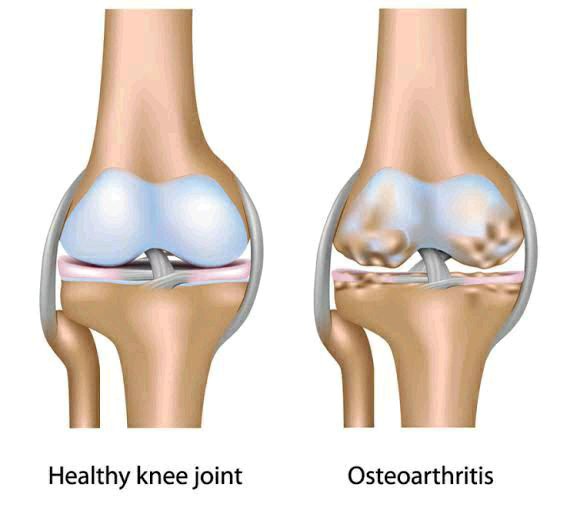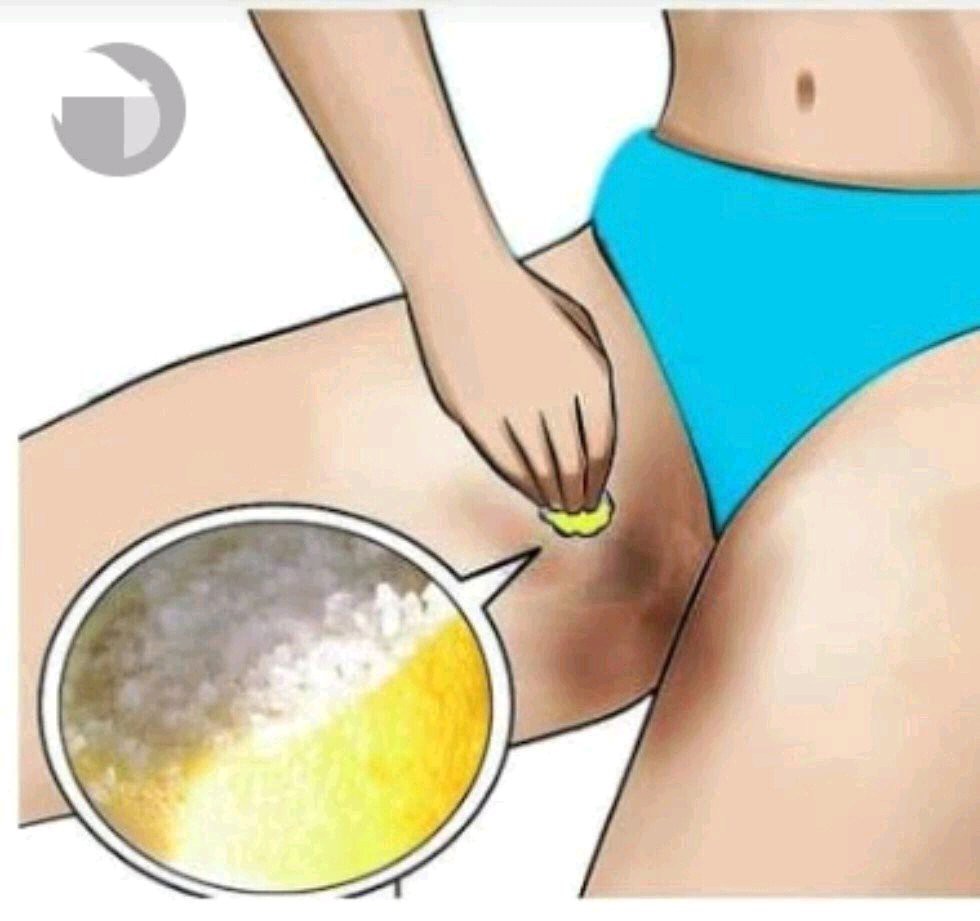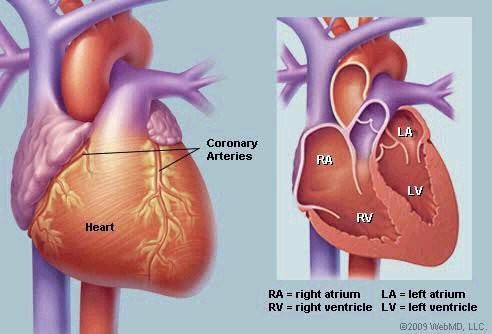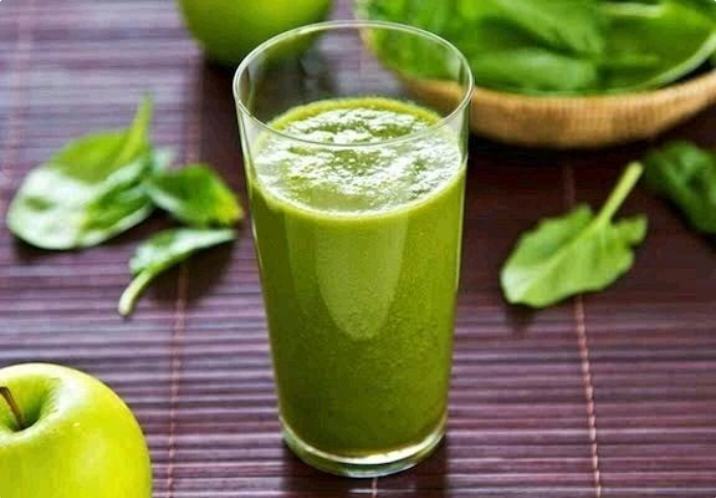Health
How Much Caffeine Is In Your Green Tea?

Green tea comes from the Camellia sinensis bush, and is produced by quickly heating the leaves in order to halt the oxidation process – less than other teas, such as black tea. This processing keeps antioxidants intact thus making green tea a unique product in as much as health is concerned……See Full Story>>....Read Full Article>>
Does Green Tea Contain Caffeine?
Yes, green tea does contain caffeine but it’s generally a much smaller amount than coffee. This however differs with the kind of green tea and the style used in preparation of the tea.
Average caffeine content: While an 8 ounce cup of green tea contains averagely 29 milligrams of caffeine (1✔).
Decaffeinated options: There is, however, green tea which is prepared in a decaffeinated form which cuts down further on caffeine.
Here is a brief comparison of how much human stimulation your cup of green tea or coffee and other related drinks contains:
‘Did You Know?
Green tea offers a mild energy boost with fewer jitters! #greentea #healthbenefits #medindia’
Green tea has fewer amounts of caffeine than coffee and other beverages that contain caffeine; hence, it can fit well in a preference of individuals with sensitive stomachs.
- Green tea: 29 mg per 8-ounce cup
- Black tea: 47 mg per 8-ounce cup
- Coffee: 133 mg per 8-ounce cup
- Espresso: 320 mg per serving
- Soft drinks: 23-27 mg per serving
- Energy drinks: 72-80 mg per serving
Effects of Caffeine on Alertness and Mood
Caffeine acts on the brain by inhibiting a neurotransmitter called adenosine which makes a person feel sleepy. The caffeine level in green tea is not as high as that found in coffee but it has the potential to improve mood, increase alertness as well as concentration (2✔).
Different types of green tea and their caffeine level
Green tea comes in very many forms, each offering varied caffeine concentrations:
Loose leaf or bagged tea: Made at various times and at different temperatures which changes the amount of caffeine present in it.
Matcha: Because the matcha green tea is prepared by mixing it with hot water into a fine powder, it has a higher caffeine content than ordinary green tea.
Instant powder, capsules, and bottled tea: Sometimes they contain caffeine but the extent depends on the processing that the coffee undergoes.
Factors Affecting Caffeine Levels in Green Tea
Infusion time: The longer the tea is brewed, the higher is its caffeine content (3✔).
Water temperature: Hot water seeping to the leaves takes more caffeine as compared to cooler water.
Leaf age: Pure and natural tea from older tea leaves contain less caffeine as compared to the fresh tea leaves.
Potential Side Effects of Caffeine in Green Tea
While green tea is generally safe, excessive caffeine intake can lead to side effects (4✔), especially for caffeine-sensitive individuals:
Anxiety and insomnia
Irregular heartbeat
Restlessness
The general population is advised to consume no more than 400 mg of caffeine per day while the sensitive people should take no more than 200 mg of caffeine.
Health Benefits of Green Tea
Green tea has been associated with many health benefits which have been attributed to the antioxidant and anti- inflammatory effects (5✔). Key health advantages include:
- Brain health
- Weight loss
- Chronic disease prevention
- Heart health
Benefits of Decaf Green Tea
Decaffeinated green tea retains most of its antioxidants and health benefits, making it a suitable option for people who wish to avoid caffeine while still enjoying green tea’s potential health perks, such as:
Reduced risk of chronic diseases: Such as heart disease and Alzheimer’s.
Skin health: Vitamin C may lessen inflammation; flavonoids may also work to prevent skin damage caused by irritation (6✔).
Green tea is a tea that has small amounts of caffeine with high antioxidants including health benefits and is suitable for those who want a gentle kick on coffee. It has less caffeine than coffee but may be used to address issues to do with alertness and health. Alternatively, depending on some effects of caffeine on the body, consumers can recommend taking the green tea before noon.
Health
Heal Your Knees And Rebuild Your Bones And Joints With This Powerful Mixtures

It is a widely held belief that once your joints begin to get more unstable, there is no way to stop the interaction from taking place even if you try your hardest. In most cases, the purpose of treatment is to alleviate the patient’s suffering as much as possible, bring down their overall level of irritation, and halt the advancement of the condition.....Read Full Article>>
The medications that are used to achieve this can be quite effective; however, they also carry the risk of unintended side effects such as acid reflux, stomach ulcers, damage to the liver or kidneys, and an increased risk of coronary events.
This is because these medications carry the potential for adverse reactions.
Our bodies are susceptible to experiencing irreparable damage over time as a result of the general wear and tear that we put on them on a daily basis, and as a consequence, we often endure agony and suffering as a result of this. Because of this, our joints have become less flexible, and we frequently experience pain and discomfort in them, particularly in the knees. In particular, our knees are particularly susceptible to this condition. The development of joint pain can be brought on by a variety of different circumstances, such as aging, injuries, or an unfavorable body position, and it can bring about a great lot of suffering and trouble in daily life. This problem needs to be fixed as early as humanly possible in order to avoid creating any additional issues. Despite this, there is a natural therapy that can be utilized that is an excellent remedy for the aggravation that is felt in the knees, and it is a treatment that can be used.
The following is the recommended configuration for it:
To make this recipe, you will need three tablespoons of chopped raisins.
40 grams of pumpkin seeds taken from inside the pumpkin
2 tablespoons of unflavored gelatin in the tablespoons.
a quantity of sesame seeds that is equivalent to four tablespoons.
200 milliliters of honey. Honey.
flaxseed meal equivalent to 8 tablespoons
In order to get everything ready, all you have to do is throw all of the ingredients into a blender and give it a good whirl until everything is combined. After that, the mixture is poured into a glass jug, and after that, it is placed in the ice chest to be kept cold.
Detailed, easy-to-follow instructions on how to make and use:
You must take in one spoonful of the combination at each of your two regular meals. The first time should be done first thing in the morning on an empty stomach, and the second time should be done first thing in the morning before lunch. Because of this syrup, digestion will become more efficient, and the bones and joints will have a more robust feeling. You will see major gains in a very short amount of time, and this wonderful end is a result that is certain to occur.
Gelatin
The primary components of gelatin are the proteins that are extracted from skin, tendons, and bones. It is used as a thickening agent in a broad variety of different food preparations, which is one of its primary functions. Collagen, which is one of the fundamental structural components of bone and ligament, can be found in rather high concentrations in this substance. It may be helpful in the prevention of mileage and the protection of the joints.
Honey The high cell reinforcement content of honey has a mitigating effect, and this effect can be seen. Honey’s high cell reinforcement content. Honey serves, more or less, as the sweet base for this recipe and possesses the typical additive capabilities. Honey can also be used as an ingredient.
Health
These 6 Fruits Can Improve Your Vision If Consumed Daily

We often underestimate the prevalence of the ailment known as poor vision. We are inclined to attribute it to the abrupt rise in the use of mobile phones, longer working hours spent in front of computers, or excessive time spent watching television.....Read Full Article>>
These factors do have an effect on one’s vision, but we mustn’t ignore the fact that there is also another significant factor that plays a role in the degeneration of one’s eye health.
A considerable impact can also be had on one’s vision if they are malnourished or undernourished. Just like the rest of our bodies, our eyes need a certain amount of nourishment in order to work effectively.
It is essential to incorporate foods into our diet that have the potential to have a positive effect on our eyes because they take in such a large amount of what we eat. Some fruits have more beneficial nutrients for the eyes than others, but fruits in general are a treasure trove of nutrients, and fruits in particular are a rich source of these nutrients. Because there are so many different kinds of fruits available, it can be difficult to decide which ones are best for your eyes.
The following is a list of fruits that are said to be good for the health of your eyes:
1. Mango
This delicious summer fruit is rich in vitamin A, an antioxidant that guards against bacterial infections and disorders that can affect the surface of the eye. Dryness and clouding are both symptoms of a deficiency in vitamin A, which puts the health of the eyes in jeopardy.
2. Apricots
This fruit has a significant amount of beta-carotene, an antioxidant that has been shown to retard the aging process of the eyes. Apricots also include a wide range of other minerals, such as zinc, copper, vitamin C, and vitamin E, which all contribute to the prevention of macular degeneration when combined with one another.
3. Blueberry
The fruit with a sweet and tart taste has potent anti-inflammatory properties and the ability to regenerate rhodopsin, both of which are beneficial to the blood vessels in the eyes. The presence of anthocyanins in this fruit contributes to the maintenance of open retinal arteries.
4. Papaya
A wonder food that is beneficial to overall eye health is papaya since it contains a high concentration of minerals, antioxidants, and enzymes.
5. Orange
In terms of the concentration of vitamin C, which has been shown to play a role in the prevention of cataracts, it ranks first among citrus fruits. Additionally, the high water content of this fruit ensures that the eyes remain hydrated.
6. Avocado
Avocados, thanks to the high levels of the compounds lutein and zeaxanthin that they contain, are beneficial for enhancing night vision and protecting the eyes from the negative effects of UV light
Health
Frequent s£x doesn’t reduce prostate cancer, experts warn

Medical experts have raised the alarm over the increasing cases of prostate cancer across the country, advising Nigerians to always seek medical attention on time.....Read Full Article>>
The experts, who spoke to Saturday PUNCH at a recently concluded 29th Annual General Meeting and Scientific conference of the Association of Urological Surgeons, Nigeria, held in Enugu, dispelled the notion that frequent sex reduces prostate cancer or prostate enlargement in males, describing it as a fallacy.
Though a Consultant Urologist and Head of Surgery Department at the Lagos State University College of Medicine, Prof Omisanjo Oluwafunmilade, encouraged men to be sexually active as much as they can, however, noted that “it is a fallacy to assume that you are able to have sex these number of times in a week, in a month or in a year, you will not develop prostate cancer”.
He noted, “There are studies that are suggesting that men who have frequent ejaculations have a slightly lower risk of developing prostate cancer compared to men who have less frequent ejaculations. But we also know that some other studies have found this not to be true.”
He emphasised that even if there’s any benefit in whatever protective effect one may get by frequent ejaculation, it could always be ruined by other factors, including genetics.
“So we encourage men to be sexually active in a healthy relationship as much as they can but it is not correct that once you have a particular amount of ejaculations or sexual exposure, you will not develop prostate cancer.
“Data has not consistently shown that. There are studies that suggest it may be protective; other studies have not confirmed that,” Oluwafunmilade stated.
He said that the number of prostate cancer cases that have been diagnosed in Nigeria has increased in all regions across the country. “Prostate cancer is more common or to correctly put, it is diagnosed more commonly now compared to before,” he disclosed.
Similarly, a Consultant Urologist at the University of Ilorin Teaching Hospital, Dr Oseni Ismaila, stated that prostate issues could be treated more especially when the patients present themselves in the hospital early.
He said it was not true that frequent sex prevents prostate cancer or prostate enlargement because there was no confirmed scientific basis for that.
“There’s a presupposition that it is either as a result of family lineage or some ongoing changes in the body. All men are at risk of developing an enlarged prostate – whether just an enlarged prostate or prostate cancer all men are at risk.
“The only man that is not at risk is the one who is castrated when he is a small boy, otherwise anybody that has two balls is at risk of developing an enlarged prostate at any time,” he stated.
Health
Exceptional Benefits Of Boiling Guava Leaves And How To Use

Guava leaves are an excellent source of natural compounds that have been used for centuries in traditional medicine for their various health benefits. These leaves contain essential nutrients, antioxidants, and anti-inflammatory properties that can help treat a wide range of illnesses. One of the most popular ways to use guava leaves is by boiling them and drinking the water. In this article, we will discuss the benefits of boiling guava leaves and drinking the water.....Read Full Article>>
1. Promotes Weight Loss
Guava leaves are rich in fiber, which helps in promoting weight loss. Drinking guava leaf water can help regulate digestion, increase metabolism, and reduce appetite, which can help you lose weight naturally.
2. Boosts Immunity
Guava leaves contain high levels of vitamin C, which is known for its immune-boosting properties. Regular consumption of guava leaf water can help boost your immunity and prevent various diseases.
3. Lowers Cholesterol
Guava leaves contain compounds that can help lower cholesterol levels in the blood. Drinking guava leaf water regularly can help reduce LDL (bad) cholesterol levels and increase HDL (good) cholesterol levels, which can help reduce the risk of heart disease.
4. Controls Blood Sugar Levels
Guava leaves contain compounds that can help regulate blood sugar levels. Drinking guava leaf water regularly can help reduce the risk of type 2 diabetes and improve insulin sensitivity.
5. Relieves Menstrual Pain
Guava leaves contain compounds that have anti-inflammatory properties that can help reduce menstrual pain. Drinking guava leaf water regularly can help alleviate cramps and other symptoms associated with menstruation.
6. Reduces Stress
Guava leaves contain compounds that can help reduce stress and anxiety. Drinking guava leaf water regularly can help promote relaxation and improve overall well-being.
7. Improves Skin Health
Guava leaves are rich in antioxidants that can help improve skin health. Drinking guava leaf water regularly can help reduce the appearance of wrinkles, fine lines, and other signs of aging.
Boiling guava leaves and drinking the water is an easy and effective way to reap the benefits of this natural remedy. Regular consumption of guava leaf water can help promote weight loss, boost immunity, lower cholesterol, regulate blood sugar levels, relieve menstrual pain, reduce stress, and improve skin health. However, it is important to consult a healthcare professional before adding guava leaf water to your diet, especially if you have any underlying health conditions or are taking any medications.
Health
Dear Ladies, See The Easy Ways To Lighten Your Inner Dark Thighs

With regards to being a woman, something that is generally vital to us is our body, and we make every effort to keep it flawless and immaculate consistently. With regards to being a woman, our bodies are something that are mean quite a bit to us. Each lady has a similar desire: to have a body that she can be pleased with, and to have the option to say that she is calm in her own skin. This is a general objective for all ladies.....Read Full Article>>
At the point when individuals come to see us, the most well-known issue they have is that they have dull inward thighs or a dim swimsuit line, the two of which can rather humiliate. We can treat both of these issues. As an immediate consequence of this, numerous ladies have created sensations of disquiet, and subsequently, they continually want to disguise themselves. As an immediate result of this, numerous ladies have created sensations of disquiet.
1. In the event that you are overweight, you have a more serious gamble of creating dim inward thighs due to the expanded contact that happens between your laps. The skin obscures because of the erosion, which is the justification for this peculiarity.
2. An adjustment of the shade of the skin might happen because of inordinate perspiring, especially when this condition is joined by the wearing of cumbersome dress.
3. Since over-shaving can cause staining, you ought to attempt to try not to do it in that specific region and on second thought utilize a hair evacuation treatment all things considered.
Guidance for drawing out the shapes of the internal thighs
1. Cucumber
Subsequent to cutting your cucumber, quickly apply the uncovered tissue of the cucumber to the impacted locale and let it there for a couple of moments prior to washing it off with water. On the off chance that you need the best impacts conceivable from this training, you ought to perform it two times per day, once in the first part of the day and once in the prior night heading to sleep. Your skin will indeed resemble being sound.
2. A piece of the strip of an orange
Notwithstanding the notable job that it plays as a fading specialist, the strip of an orange can likewise be used as an exfoliant for the skin. To make a glue out of the orange strip, you should simply accept the strip, permit it to dry totally prior to crushing it, and afterward join the ground strip with some honey and water. Presto! You currently have a glue out of the orange strip.
You ought to wash this glue off after first applying it to the impacted locale, allowing it to sit for a couple of moments, and afterward eliminating it from the impacted region. Continuously do your exercises in this design consistently.
3. Aloe vera is one more kind of normal fixing that can ease up the skin. Subsequent to cutting the aloe vera plant fifty, scratch the gel out of the center of the plant, and apply it to the area that should be peeled. Subsequent to saving it for a couple of moments, you ought to give the locale a total cleaning.
4. Lime
Lemon, similar to orange, can be utilized to shed the skin; essentially apply the juice to your skin and wash it off following a couple of moments. Orange is one more natural product that can be utilized in a similar way. Orange is one more organic product that can be used in a similar way as recently portrayed.
5. Tomatoes.
In the wake of cutting a tomato down the middle and applying the juice to the impacted region, clean up following a couple of moments have passed. Tomatoes are a characteristic solution for an assortment of skin conditions.
Health
When Your Heart Is In Danger Your Body Will Give You These 11 Signs

The following are the indications:....Read Full Article>>
1. The inconvenient nature of the interior of the Chest.
When a notification in the chest causes you inconvenience, you should acknowledge that there is an issue. The muscle was under tension. Unrelenting chest pain can be brought on by a weakening of the muscle mass and ligaments across the edges, and I will demonstrate the state of my heart in this paragraph.
2. Excruciating pain in the stomach and illness.
Complaints, intestinal pollution, strain, and discomfort, as well as chronic gastrointestinal issues, may be present. In most cases, queasy stomach and feelings of sickness are only temporary and resolve on their own.
3. The pain that spreads from the chest to the arm is another indication that the coronary heart is a source of danger.
4. some words of advice
Your tips may be an indication that there are problems with your bloodstream. Your brain need oxygen-rich blood in order to maintain its ability to be flexible. Otherwise, you run the risk of becoming unstable or possibly passing out.
Blood clots, blocked blood vessels, an unhappy heart, and irregular heartbeats are some of the factors that might contribute to a blood supply that is inadequate to the brain.
5. an issue with the throat or the jaw
Glossopharyngeal neuralgia is a painful condition that can be brought on by an illness that affects only a portion of your throat after swallowing, known as “gulping wake.”
This ailment can manifest itself on one side of the ears, and it can be traced back to the tongue, tonsil, or jaw. This is a rare circumstance, which has the potential to produce rapid and intense suffering.
6. Engineering.
a temporary weakening or deterioration of organs, tissues, or cells following an unneeded attempt or provocation.
7. Snoring while you sleep at the same time.
Wheezing can be caused by a number of different things, including but not limited to the oral and sinuse systems, the consumption of alcoholic beverages, sensitivity, cold, and weight.
While you are resting and gradually moving into a deeper state of relaxation, the muscles inside of your mouth, including those that are sensitive to flavor, as well as your tongue and throat, relax.
8. Persistent and Excessive Sweating
Diabetes can cause damage to nerves, and as a result, certain people are “infected” continuously by the nerves that manage their sweat organs. This could result in hyperhidrosis, which is an abnormally high level of sweating.
9. A long and drawn-out cough.
There are a variety of circumstances that may warrant a cough waiting interval.
10. The length of the legs, toes, and legs is reduced.
Sometimes a sickness will manifest itself, such as one that affects the heart, liver, or kidneys.
If your lower legs swell up during the night, it could be a sign that your right coronary heart isn’t doing a good job of holding on to salt and water. Gravity causes fluid to mix more in the feet and lessens the amount of fluid in the legs, but fluid can also build in the center of the body and in the chest.
a racing or fluttering sensation in the heart
The majority of the time, they are brought on by anxiety and discomfort, but they can also be brought on by consuming an excessive amount of coffee, nicotine, or alcohol.
They are also possible to arise while you are pregnant. In exceptional instances, palpitations can be an indicator of an additional correct coronary heart problem. If you are experiencing palpitations, you should make an appointment with your health care practitioner
Health
Why You Should Boil Pawpaw Leaves And Drink The Water Regularly In Moderation

Pawpaw, also known as papaya, is a popular fruit that is enjoyed all around the world. However, many people are unaware of the numerous health benefits that pawpaw leaves offer. Boiling pawpaw leaves and drinking the water regularly in moderation can be highly beneficial for your overall health. In this article, we will discuss the reasons why you should boil pawpaw leaves and drink the water regularly in moderation.....Read Full Article>>
1. Boosts Immunity
According to WebMD. Pawpaw leaves are rich in antioxidants, vitamins, and minerals that can help to boost your immune system. Drinking pawpaw leaf water can help to protect your body from harmful pathogens and infections.
2. Anti-inflammatory properties
Pawpaw leaves contain papain and chymopapain, two enzymes that have potent anti-inflammatory properties. Drinking pawpaw leaf water can help to reduce inflammation in the body, which can help to alleviate a wide range of health conditions, including arthritis and joint pain.
3. Lowers Blood Sugar Levels
Pawpaw leaves contain compounds that have been shown to help regulate blood sugar levels. Drinking pawpaw leaf water can be highly beneficial for people with diabetes or those who are at risk of developing diabetes.
4. Helps with Digestion
Pawpaw leaves contain papain, an enzyme that can help to break down protein in the body. Drinking pawpaw leaf water can help to improve digestion and alleviate digestive issues such as constipation, bloating, and indigestion.
5. Reduces Risk of Cancer
Pawpaw leaves contain acetogenin, a compound that has been shown to have anti-cancer properties. Drinking pawpaw leaf water can help to reduce the risk of cancer and protect the body from harmful cancer-causing agents.
6. Good for Skin Health
Pawpaw leaves are rich in vitamin C, which is essential for skin health. Drinking pawpaw leaf water can help to improve skin elasticity, reduce wrinkles, and promote a healthy, glowing complexion.
7. Reduces Stress and Anxiety
Pawpaw leaves contain compounds that have a calming effect on the body. Drinking pawpaw leaf water can help to reduce stress and anxiety, promote relaxation, and improve sleep quality.
Boiling pawpaw leaves and drinking the water regularly in moderation can be highly beneficial for your overall health. It can boost your immune system, reduce inflammation, regulate blood sugar levels, improve digestion, reduce the risk of cancer, improve skin health, and promote relaxation. However, it is essential to consume pawpaw leaf water in moderation and consult with your healthcare provider before adding it to your diet
Health
Why Drinking Bitter Leaf Water Can Be Dangerous

Bitter leaf water, derived from the leaves of the bitter leaf plant (Vernonia amygdalina), has gained popularity for its purported health benefits. However, it is essential to explore not only its advantages but also potential drawbacks that may arise from its consumption.....Read Full Article>>
1. Bitter Taste:
As the name suggests, bitter leaf water possesses a strong and distinct bitter taste, which can be. unappealing to many individuals. This taste may deter people from incorporating it into their regular diet, affecting their willingness to reap its potential benefits.
2. Potential Allergic Reactions:
Some individuals may be allergic to compounds found in bitter leaf water, leading to adverse reactions such as itching, swelling, or difficulty breathing. It is crucial to exercise caution and consult with a healthcare professional if allergic reactions are suspected.
3. Medicinal Interactions:
Bitter leaf water is often consumed for its medicinal properties, but it may interact with certain medications. Individuals taking specific drugs should seek advice from their healthcare provider to prevent any potential adverse effects resulting from drug interactions.
4. Over consumption and Digestive Issues:
Excessive consumption of bitter leaf water may lead to digestive issues, including nausea, diarrhea, or stomach cramps. It is crucial to maintain moderation in intake and monitor one’s body’s response to avoid discomfort.
5. Not Suitable for Everyone:
Pregnant women and individuals with certain medical conditions may need to exercise caution when considering bitter leaf water consumption. It is advisable for such individuals to consult their healthcare provider to determine whether it is safe for them.
6. Lack of Scientific Evidence:
While bitter leaf water is traditionally believed to have various health benefits, there is a notable absence of extensive scientific research validating these claims. Relying solely on traditional beliefs without robust scientific evidence may pose a risk of overlooking potential drawbacks or side effects.
Conclusion:
While bitter leaf water is celebrated for its potential health benefits, it is essential to approach its consumption with caution. Individuals should be mindful of the potential disadvantages, including allergic reactions, digestive issues, and medication interactions. Consulting with a healthcare professional before incorporating bitter leaf water into one’s diet is advisable to ensure that it aligns with individual health needs and circumstances.
Health
A Very Good Natural Medicine For High Blood Pressure And Cholesterol

Supposing that you suffer from high cholesterol or high blood sugar levels, the following traditional Amish remedy is the miracle that you have been searching for! Moreover, it is amazing for your overall health, because it boosts the immune system and treats various other health problems.....Read Full Article>>
This is how you can prepare this natural health bomb:
Ingredients needed:
– 1 piece of ginger (grated)
– 1 teaspoon of lemon juice
– 1 garlic clove (grated)
– 1 teaspoon of apple cider vinegar
– 1 teaspoon of organic honey
Instructions for preparation:
You need to simply mix all the ingredients. Then, refrigerate the mixture for about 5 days.
Usage:
After the 5 days, consume this remedy two times a day, in the morning, before the breakfast, and in the evening, before dinner. Do not take it more than 3 times daily.
After just a week, you are going to experience miraculous effects! The blood pressure is going to be normalized, as well as the blood sugar and cholesterol levels. In addition, your entire body will be much healthier
Health
Avoid These 9 Foods if You Want Whiter Teeth

Many people want a bright smile. But some foods can make your teeth less white. Knowing which foods to avoid if you want whiter teeth is key for good tooth discolouration prevention. We’ll look at nine foods that can stain or harm your teeth. This will help you make better food choices.You can improve your dental hygiene by avoiding or eating less of these foods. This will help you get a healthier, brighter smile. Let’s find out what to avoid for your teeth’s sake.....Read Full Article>>
Why Are Certain Foods Bad for Your Teeth?
Knowing which foods harm your teeth is key to a bright smile. Many teeth-staining foods contain acids and pigments that cause discolouration and wear down enamel. Drinks like coffee and red wine are especially bad because they weaken enamel, making it easier for stains to get stuck.
Sticky, sugary foods can lead to cavities in several ways. They help bacteria grow and leave a plaque layer on teeth. Candy and some cereals are big culprits. Eating them too often, without good oral care, increases the risk of stains.
Some fruits, like berries, can also stain teeth because of their pigments. They can even get stuck between teeth and gums, affecting your mouth’s health. Even though they’re good for you, they’re something to watch out for when considering dental care suggestions.
Eating healthily for white teeth means making smart choices. Foods like apples and crunchy veggies like celery help keep your mouth clean and teeth healthy. Knowing this helps you pick foods that keep your smile looking great.
Staining Agents: The Top Offenders
Many foods can stain teeth, which is a big concern for those wanting whiter smiles. Knowing which foods stain teeth is key to finding teeth-whitening foods and keeping your mouth healthy.
- Black tea: This favourite drink has many tannins, which stain teeth more than coffee.
- Cola: Its acid and chromogens make cola a big problem for keeping teeth white.
- Red wine is acidic and has dark pigments sticking to teeth.
- Tomato-based sauces: Their acidity and chromogens can cause a lot of staining.
- Intensely coloured fruits: Fruits like blueberries, blackberries, and pomegranates often stain teeth.
- Beetroots: Beetroots have betanin, a pigment that can discolour teeth.
- Balsamic vinegar: Its dark colour can also stain your smile.
To fight against these foods, use a straw when drinking dark drinks. Swallowing stain-causing foods quickly can also help. Drinking water or chewing sugarless gum after meals can wash away stains.
Good oral hygiene is vital. Brush and floss daily. Regular dental visits are also important to keep your teeth healthy and bright, even when eating foods stain teeth.
Foods to Avoid if You Want Whiter Teeth
Keeping your smile bright is more than just brushing and dental visits. Some foods can harm your efforts to keep teeth white. Knowing which foods stain teeth is key for a better smile.
Berries: Delicious but Dangerous
Berries like blueberries and blackberries are full of antioxidants. But they can also stain your teeth. Their dark colours can cause big stains, especially if you eat them often.
The acids in these fruits can also wear down your enamel. This makes your teeth more prone to stains. To lessen the stain, eat berries with hard cheese or milk. This can help neutralise the acid and protect your enamel.
Tomato-Based Sauces: The Red Menace
Tomato-based sauces add flavour to many dishes. But they can stain your teeth. The red pigments and acidity in tomatoes can cause stubborn stains.
For a brighter smile, choose olive oil-based sauces instead. Reducing tomato sauce helps keep your teeth white and improves dental health.
Everyday Beverages That Cause Discolouration
Keeping your smile bright means watching what you drink. Some drinks can stain your teeth and harm your oral health. Knowing which drinks can stain your teeth can help you make better choices.
Coffee: The Caffeine Conundrum
Coffee is a favourite for many in the morning. However, it contains tannins that can stain teeth. It also changes your mouth’s pH, making stains worse. Try using a straw or brushing your teeth after drinking coffee to keep your smile bright.
Wine: Both Red and White Woes
Wine drinkers must be careful, as red and white wine can stain teeth. Red wine’s tannins cause deep stains. White wine, though lighter, is acidic and can wear away enamel, making teeth more prone to stains. Rinsing your mouth with water after drinking can help protect your teeth.
Sticky and Sugary Treats to Limit
Sticky and sugary treats are tasty but bad for your teeth. Candies, chocolates, and sugary drinks are big culprits. They stick to your teeth, letting bacteria cause damage.
Caramels and taffy are especially bad. They stick to your teeth and help harmful bacteria grow. Dental care suggestions say to eat less of these sweets to keep your teeth healthy.
Drinks like soda can harm your teeth as much as meth. Sour candies also attack your teeth with acids. This makes getting cavities more likely.
Dried fruits, like apricots and figs, are sticky and bad for your teeth. Potato chips become sugar in your mouth, feeding bacteria and causing acid.
Here’s a table showing some bad treats and how they affect your teeth:
| Treat | Potential Dental Impact |
|---|---|
| Caramels | Sticky, increases risk of cavities |
| Sour Candies | High acid content, aggressive on enamel |
| Dried Fruits | Clings to teeth, promotes decay |
| Potato Chips | Turns into sugar, feeds plaque bacteria |
| Carbonated Drinks | Can damage enamel significantly |
Good dental care is key to fighting the effects of these threats. Brushing, flossing, and choosing what you eat can help keep your teeth bright and healthy.
Acidic Foods and Their Erosion Effects
Acidic foods can harm your teeth, causing enamel erosion and sensitivity. Knowing how acidic foods affect your teeth is key to preventing erosion and brightening your smile. This section looks at common acidic foods that need careful consumption.
Citrus Fruits: A Sour Note for Your Smile
Citrus fruits like lemons, oranges, and grapefruits contain vitamin C but are very acidic. They can damage your enamel, causing sensitivity and discolouration. While they’re good for you and help keep teeth white, eating them in moderation is important. Rinsing your mouth with water after eating citrus can help protect your enamel.
Pickles and Vinegar: The Hidden Dangers
Pickles and vinegar are often overlooked but can harm your teeth. Their acidity can damage enamel if eaten too much. Knowing their impact is key to preventing erosion. Eating less and more alkaline foods can help keep your teeth healthy and white.
| Food Item | pH Level | Acidic Impact | Prevention Tips |
|---|---|---|---|
| Citrus Fruits | 2.0 – 4.0 | High enamel erosion risk | Rinse mouth with water; consume in moderation |
| Pickles | 3.0 – 4.0 | Leads to enamel weakness | Limit intake; choose alkaline alternatives |
| Vinegar | 2.5 – 3.0 | Can damage enamel | Drink water after consumption; avoid direct contact |
| Soft Drinks | 2.5 – 3.5 | Causes significant enamel erosion | Use a straw; drink water alongside |
Awareness of acidic foods and prevention strategies can protect your teeth from erosion. This way, you can enjoy a healthy diet while keeping your teeth safe.
Refined Carbohydrates: Hidden Contributors to Tooth Staining
Refined carbohydrates in foods like crackers and cookies harm dental health. They turn into sugars in the mouth, helping bacteria grow, which can cause cavities and tooth stains.
It’s okay to enjoy these snacks sometimes. But keeping your teeth clean is key.
Choosing teeth-whitening foods helps keep your smile bright. Whole grains are better than refined carbs because they cause less plaque. Drinks with sugar, like soft drinks and fruit juices, are worse for teeth than sweets.
Be careful not to chew on ice, as it can damage teeth. Rinsing with water after sugary foods or using a straw helps. Eating healthier snacks reduces harm from refined carbs and keeps your smile healthy.
Staying away from refined carbs and eating teeth-whitening foods improves dental health.
Tips for Maintaining a Bright Smile
To keep your teeth white, you need to make it a habit. Brushing and flossing are key. Brush twice daily with fluoride toothpaste and floss to clean between teeth. Using an antibacterial mouthwash can also help protect against stains and gum disease.
Watch what you eat to keep your smile bright. Avoid foods and drinks that stain, like coffee, red wine, and dark berries. If you do eat these, use a straw to reduce tooth contact. Drinking water daily helps remove food, bacteria, and acids that cause stains and bad breath.
Regular dental visits are also crucial. Experts say you should see your dentist every six months. This helps keep your smile bright and catches health issues early. You can also consider professional whitening to boost your smile’s brightness. By following these tips, you can get the smile you want.
Avoid foods like berries, tomato sauces, coffee, and wine to keep your teeth white. Also, limit sweets, citrus fruits, pickles, refined carbs, and vinegar.
Staining foods can damage tooth enamel and cause bacteria to grow, leading to cavities and discolouration. Knowing this is key to good dental care.
Yes, coffee and wine can stain teeth because of their acidity and pigments. Drinking through a straw or rinsing with water can help.
To stop tooth discolouration, brush and floss often. Limit foods that stain and eat tooth-friendly foods.
Citrus fruits are good for you, but their acidity can harm enamel. Eat them in small amounts and rinse with water to protect your teeth.
Brushing, flossing, mouthwash, and drinking water are great for a bright smile.
Refined carbohydrates turn to sugars quickly, which can cause bacteria and staining. Enjoy them in small amounts and practice good oral hygiene.
Yes, crunchy fruits, veggies, dairy, and green tea can help keep your teeth healthy and white.
FAQ
What are the foods to avoid if I want whiter teeth?
How do staining foods affect my dental health?
Are there any drinks that contribute to tooth staining?
What is the best way to prevent tooth discolouration?
Can I enjoy acidic foods like citrus fruits?
What dental care suggestions can help maintain a bright smile?
What role do refined carbohydrates play in tooth staining?
Are there any teeth-whitening foods I can include in my diet?
-

 Latest News1 month ago
Latest News1 month agoBREAKING: Journalist Who Exposed Army Chief Lagbaja’s Death In Serious Trouble As Military Reportedly Issues Unexpected Order
-

 Latest News2 days ago
Latest News2 days agoBREAKING: Finland To Sue Tinubu For Falsely Accusing Simon Ekpa? See Facts As Biafrans’ Claim Goes Viral
-

 Latest News2 months ago
Latest News2 months agoSUNDAY Turns BLOODY As Simon Ekpa’s Boys Reportedly Slaughter Dozens Of Soldiers; SEE Details
-

 Health2 months ago
Health2 months agoBitter Leaf Water is Not For You, Should Stop Drinking If You Belong to These Category
-

 Latest News2 days ago
Latest News2 days agoBREAKING: Filling Station To Adjust Their Pumps As NNPC Announces News Fuel Price; Details Below
-

 Latest News3 days ago
Latest News3 days agoJUST IN: The Pastor Of Dominion City Church, David Ogbueli Calls Out 100 People During Service And Gives Them N10m
-

 Latest News2 months ago
Latest News2 months agoMohbad’s Wife Is PREGNANT? – Late Singer Wife Finally Breaks Silence On Viral Report, Here’s What She Said
-

 Health2 months ago
Health2 months agoAvoid Prostate Cancer It Suddenly Kills, Stop Eating These 4 Foods In Excess


































































